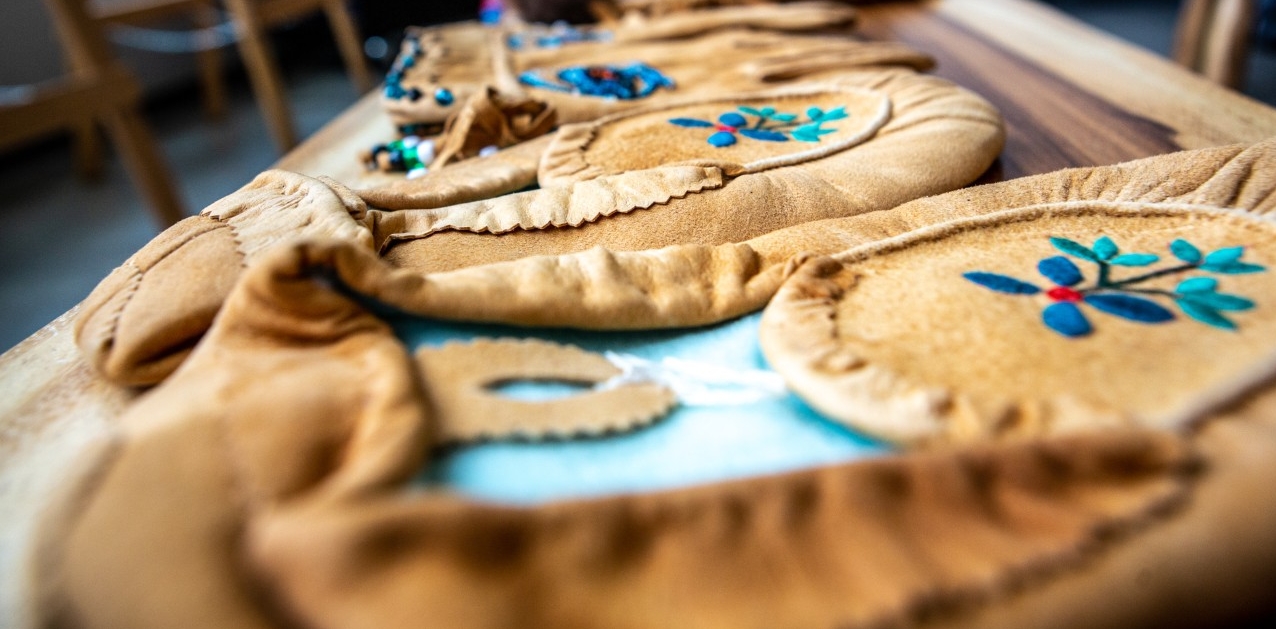Community-engaged learning fund for Indigenous students
The Office of Community Engagement (OCE) supports Concordia Indigenous graduate students by providing awards up to $6000 for community-based research and the implementation of Indigenous methods.

About the CELFIS awards
The Community-engaged learning fund for Indigenous students (CELFIS) recognizes Indigenous knowledge and methodologies as important contributions to academic knowledge and supports Indigenous students in anchoring their work in Indigenous communities. The goal of the awards is to contribute to positive change in Indigenous communities by mobilizing Indigenous students’ energy and expertise.
Applicant eligibility
- Applicants must be registered in a master’s or PhD program at Concordia University. Students can be enrolled in any discipline.
- Applicants must be First Nations, Inuit, or Métis in Canada and registered with the Otsenhákta Student Centre. This includes both status and non-status Indigenous students living on or off-reserve.
- Any project currently funded by the Office of Community Engagement or the SHIFT Centre for Social Transformation is not eligible.
- CELFIS recipients from past years are eligible if they demonstrate how additional funding allows for the advancement of their project.
Eligible projects
CELFIS supports the implementation of community-based research and Indigenous research methods for projects that contribute to the student’s academic pursuits.
Eligible projects should:
- Involve the active participation of Indigenous community members (more than one person)
- Demonstrate relevance for the community concerned (meet the needs of community)
- Contribute to develop capacities, skills, knowledge and/or wellbeing of the community concerned (positive impact)
Definitions:
- Community-based research is “a research approach that involves active participation of stakeholders, those whose lives are affected by the issue being studied, in all phases of research for the purpose of producing useful results to make positive changes" (CBRC). Learn more about community-based research.
- Indigenous research methods are grounded in relationships and relational accountability, Indigenous research is conducted by Indigenous scholars, and it involves Indigenous participants and communities. Learn more about Indigenous research methodologies.).
Examples of eligible projects and expenses
- Research in community (“field work”)
- Experimenting with Indigenous research methodologies (workshops, ceremonies, podcast, beadwork, etc.)
- Organizing knowledge mobilization or community capacity building activities (training, presentation of results, exhibition of research findings, etc.)
- Paying for community expertise (Elders, Knowledge Keepers, etc.)
- Expenses related to complying to local community protocols
- Expenses related to creating ethical space(s) for research
- Expenses related to maintaining good relationships with collaborators
Selection process
CELFIS applications will be evaluated against the following three criteria by an external Indigenous selection committee:
- Use of a community-engaged research approach
- Anchoring in Indigenous methods
- Potential positive impact for the community concerned
Selected projects will be awarded a maximum of $6000 per project. Students may only receive funding for one project per year.
Support for applicants
If you have questions about the program or if you would like help with your application, reach out to Geneviève Sioui, program coordinator, at communityengagement@concordia.ca.
CELFIS application
Before applying, you can download the questions to prepare your answers. Students should submit their applications via the online form before the deadline.
Applications for 2026 are open from March 9 to April 10, 2026.
Hear from the 2024 recipients
Collaboration
CELFIS is a collaboration between Concordia University’s Office of Community Engagement and the SHIFT Centre for Social Transformation.

